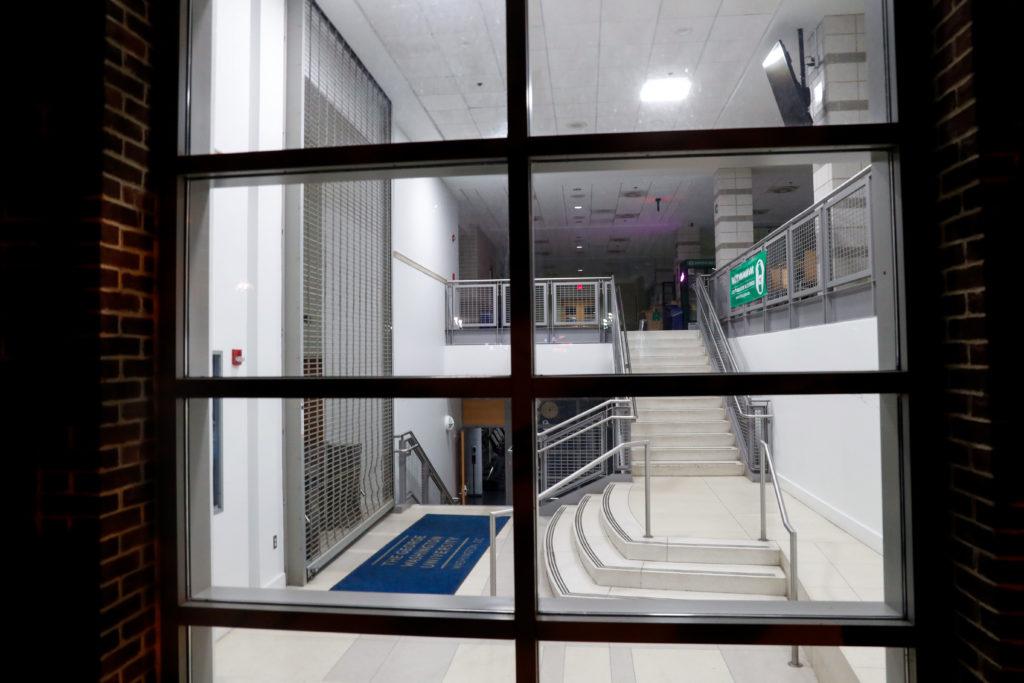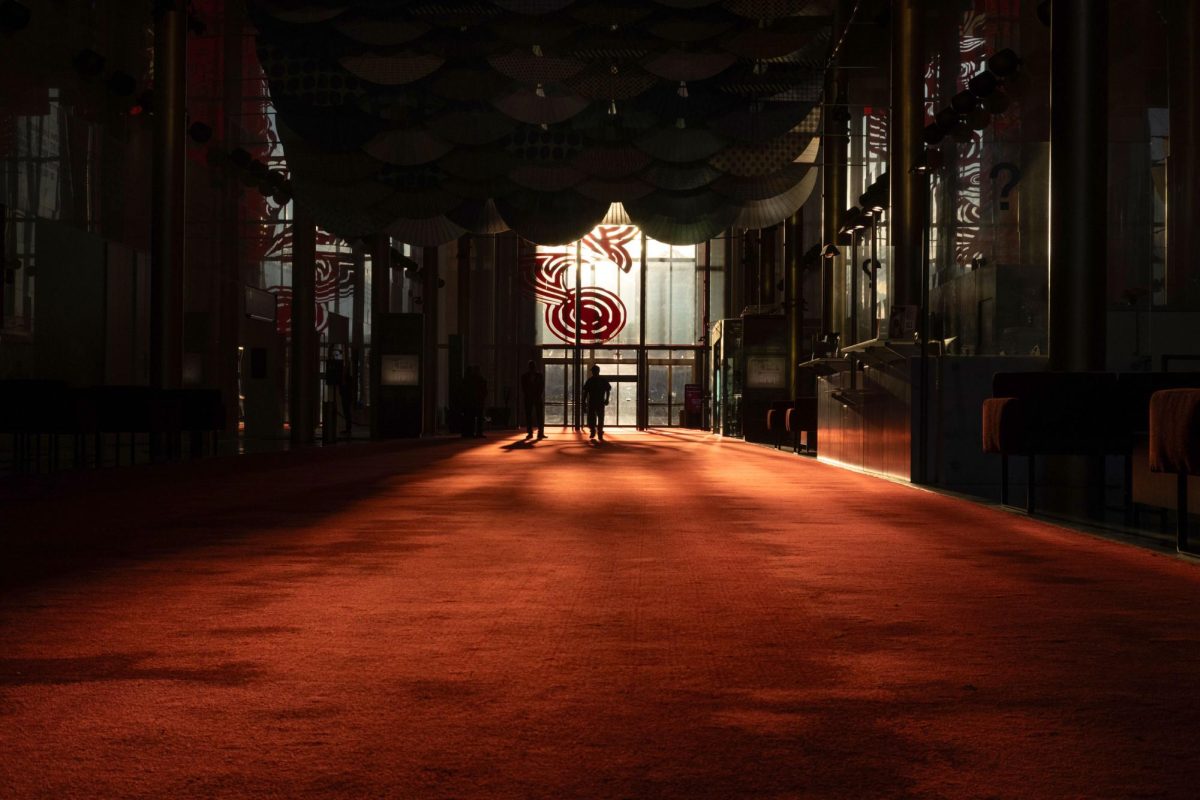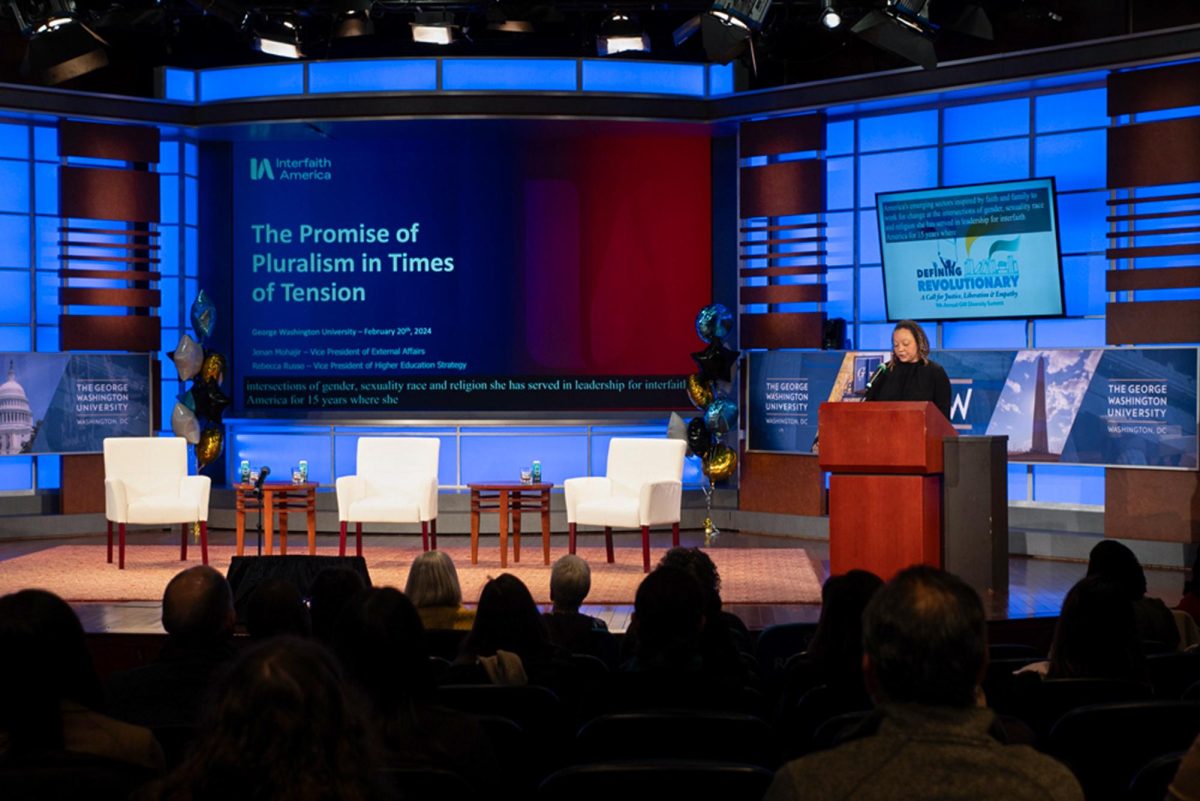Students said they want officials to expand Lerner Health and Wellness Center hours after GW shortened the center’s operating hours in fall 2021 following the return to campus.
More than a dozen students said Lerner’s hours inhibit their ability to exercise at early morning or late night times after officials shortened the center’s operating hours by three hours on weekdays, five hours on Saturdays and four and a half hours on Sundays, according to the Lerner’s website archives. Officials said they shortened Lerner’s hours in the 2020-21 and 2021-22 academic years because of COVID-19 and hope to expand work-study options at the center.
Shane Dong, a third-year student in the School of Medicine and Health Sciences, said Lerner’s hours fail to accommodate his “rigid” academic schedule and that it would be “really nice” for Lerner to open earlier and close later.
“Lerner’s hours could be a little bit more flexible,” Dong said.
Lerner is open from 7 a.m. to 9 p.m. on weekdays, 10 a.m. to 4 p.m. on Saturdays and noon to 8 p.m. on Sundays, according to the center’s website. Before in-person classes and events ceased due to the pandemic in March 2020, Lerner was open from 6:30 a.m. to 11:30 p.m. on weekdays, 9 a.m. to 8 p.m. on Saturdays and 11 a.m. to 11:30 p.m. on Sundays since at least spring 2014, according to the center’s website archives.
Officials allowed 500 on-campus students in fall 2020 to schedule hourly workout blocks at Lerner during the semester. Officials let 2,000 on-campus students in spring 2021 to work out at Lerner from 7 to 10 a.m. and 5 to 8 p.m. on weekdays.
Andre Julien, the director of Lerner, said officials decreased the center’s hours between fall 2020 and spring 2022 to adhere to D.C. and University COVID-19 mitigation guidelines. He said officials observed the “schedules and habits” of students, faculty and staff without COVID-19 mitigation efforts in place via GWorld card swipes at the center after Lerner reopened in October following its closure in May 2022 for heating, ventilation and cooling system renovations.
“This semester, as we welcomed our faculty and staff back into the building for the first time since March 2020, we have continued to track the check-ins and check-outs to monitor peak and slow times for individual students, faculty and staff who come to work out,” Julien said in an email.
All of GW’s 12 peer schools have gyms with longer hours than Lerner, except one of the University of Southern California’s three gyms, which is open for a shorter time than GW’s on weekends.
Julien said there was a reduction in Lerner work-study options for students in previous academic years due to “changes” in the center’s hours. He said Lerner officials have offered more work-study options at the center this year and plan to continue offering more options in the future.
“This year, as Lerner began its transition to a more fully operational building, we have been able to start offering more hours for students to work and foresee that continuing,” Julien said.
More than a dozen students said Lerner’s current hours limit the number of available hours they have to exercise at the center before and after classes.
Nicholas Smaldone, a senior majoring in international environmental studies and English, said he doesn’t understand why Lerner is slower in fully reopening post-pandemic than other University buildings that have adjusted back to pre-COVID hours. He said Lerner hasn’t been as “consistent” of a resource as he would have liked in college due to its hours and renovations.
“I don’t know why we still haven’t gone back to pre-COVID hours when everything else on campus is at least adjusting or adapting,” Smaldone said. “The gym was also being renovated like all this year, and it wasn’t even open.”
Nevan McNamara, a sophomore majoring in political science, said the center should be open until at least 10 p.m. if it cannot be open until midnight. He said Lerner’s hours, “tiny” space, hot temperatures and reportedly broken equipment that takes “weeks to fix” indicate a lack of administrative attention toward the center.
“It seems like they just don’t really care about the gym in general,” McNamara said.
Sofia Khugaeva, a freshman majoring in biomedical engineering, said the center opening at 7 a.m. makes it hard to work out before her 8 a.m. classes, when she would prefer to work out.
“I really wanted to go to the gym before class, but that’s not possible,” Khugaeva said.
Rigel Brown, a junior majoring in biomedical engineering, said he struggles to work out at Lerner because the center often closes before he is done studying, which can be “pretty late” as an engineering student.
“It’d be helpful if the school gym was open until midnight because there’s Planet Fitnesses and things where they have that,” Brown said.
Four candidates who ran for Student Association executive positions in April elections said they would extend Lerner’s hours because they are too short.
Edy Koenigs, a junior majoring in religion and political science who ran for SA president with a platform point of extending Lerner’s hours, said the center’s operating hours make the center “pretty inaccessible” to Muslim community members who observe Ramadan fasting because Lerner sometimes closes before they have time to eat after sunset and exercise.
“It forces students to choose between their social health and being with friends and forming relationships and their physical and mental health,” Koenigs said.
Koenigs said Lerner’s hours could negatively affect students’ academic performance because “a lot” of students use the center to sustain their mental health and clarity.
“We should provide this for students because it will help them,” Koenigs said.
Arya Thakur, a sophomore majoring in international affairs and finance who ran for SA vice president with a platform point of extending Lerner’s hours, said the center’s hours disproportionately disadvantage low-income students, who find it more difficult to purchase memberships for gyms that are open longer than Lerner.
“They can’t just go and buy a gym membership because GW is making it inconvenient to work out,” Thakur said.
Thakur said GW students should have a gym with longer hours after “paying so much” to attend the University.
“I think it’s very feasible to keep Lerner open, it’s just a question of whether the University wants to accommodate us or not,” Thakur said.










